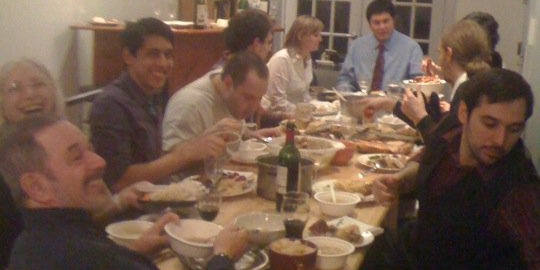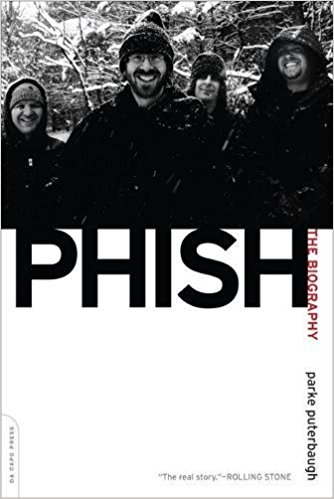Thanksgiving as Adulthood
by Ashley Bales
I’ve never gone home for Thanksgiving. Not since ‘going’ became part of the complication. Certainly, I had many lovely Thanksgivings at home before I left home, but since moving out of my parents’ house I’ve never made the trip back just for the comforts of family and my father’s unbeatable stuffing and pumpkin pie. Some of my favorite Thanksgivings, however, have been as an adult, with friends and stragglers and all the rest who also found long distance travel a month before Christmas impractical.
In college, my Thanksgivings were full of friends as broke as I was. None of us knew how to cook a turkey and setting the table felt like dress-up. We bought gallons of Carlo Rossi and traded who got to drink out of the one unbroken wine glass. By grad school I was making stuffing almost as well as my father and amazed my international friends, who had never seen a 20 lb turkey. My greatest successes were the years when we were all too busy to go home, home was too far. We were stuck here and I knew what to do with a baster and a carving knife.
A year after my now husband and I started dating, his parents decided they’d come to New York for the holiday. This was complicated by my brother, who subsequently announced that while he didn’t have leave for Christmas, he could make it to the west coast for Thanksgiving. When I explained why I regrettably would not be able to see him, as I was already committed in the east, he joyously insisted he would come to me instead. My mother and step-father quickly joined the caravan. My place couldn’t accommodate a crowd, so we’d host at my boyfriend Mike’s. The day before, Mike, his mother, her boyfriend and I headed off to buy the groceries with the last of her food stamps. As we were walking out of the apartment she suggested we check the size of the oven. I scoffed, she insisted, and I ran in to find an oven not much bigger than a bread box. There would be no way to cook the turkey in it. Luckily, my apartment, a mere 4 blocks away, had a beautiful oven. We’d cook the bird there, and bring it over for dinner.
The day came. Timers were set, the parade was on. Mike and I took turns running over to my apartment to baste the bird. My mother arrived with chicken soup, and the meeting of the families happened blessedly in my absence, as I frantically basted 4 blocks away. A friend called at some point to ask if she could bring someone and then showed up with three extra Parisians who sat between the parents and either couldn’t or wouldn’t speak English. My step-father announced that he was vegetarian, when I’d only ever known him to be lazily kosher and Mike ran out to buy fish. Someone’s dog took a shit on the floor and I managed to carry all 22 lbs of that turkey the four long blocks in a crumpling aluminum pan without dumping it onto the sidewalk. It was not my favorite Thanksgiving, but it was the first with my husband.
Since, Thanksgivings have become less adventuresome. Friends have enough money to go to their families. They have families of their own. None of us are playing at adulthood anymore. Worst of all, everyone can cook now, though I can be confident—particularly with the new spatchcocking craze—that you’ll be hard-pressed to find a stuffing as good as mine.
Happy Thanksgiving.
Ashley Bales is a current student of The Mountainview low-residency MFA in Fiction and Nonfiction. She holds a Ph.D. in Biological Anthropology, teaches in the Math and Science Department at Pratt Institute and is web editor for Assignment Magazine.























